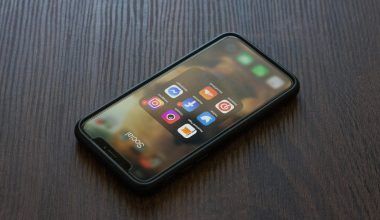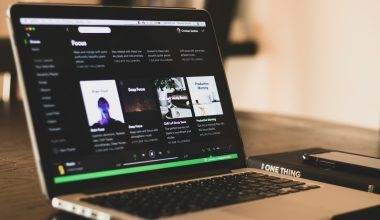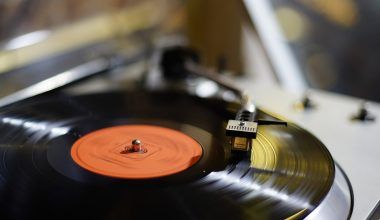Imagine spending months, maybe years, crafting a piece of art that’s deeply personal and unique. Now imagine someone else owning it, controlling it, and reaping most of the benefits while you get little to nothing. This is the reality for many artists who don’t own their masters. But what does that even mean? Let’s break it down in a way that’s easy to understand.
When we talk about an artist’s “masters,” we’re referring to the original recordings of their music. These masters are essentially the copyright to the music. Whoever owns the masters decides how and where the music is used. They also receive the bulk of the revenue from its use. For decades, many artists have unknowingly signed away ownership of their masters, often because they were excited to get their big break without fully understanding the terms of their contracts.
Why Do Artists Sign Away Their Masters?
It’s easy to wonder why anyone would give up ownership of something so valuable. The truth is, it’s often a matter of opportunity and resources. When an artist is starting out, they typically don’t have the money to produce their music, market it, or distribute it to a wider audience. Record labels step in to provide the funding and infrastructure needed to launch an artist’s career. In exchange, the labels usually require ownership of the masters.
At first glance, it might seem like a fair trade. The label takes a financial risk by investing in an unknown artist, so they expect a return. But the terms of these agreements are often heavily skewed in favor of the label. Once an artist signs over their masters, it can be incredibly difficult—if not impossible—to get them back.
The Impact of Not Owning Your Masters
Not owning your masters can have long-term financial and creative consequences. For one, artists who don’t own their masters miss out on significant revenue streams. Any time their music is streamed, played on the radio, or used in a movie or commercial, the bulk of the money goes to the owner of the masters. The artist often receives only a small percentage, which is usually predetermined by their contract.
Creatively, not owning your masters means you lose control over how your music is used. Imagine seeing your song used in a way you don’t agree with—maybe in an ad for a product or company you don’t support. If you don’t own your masters, you have little to no say in the matter. This lack of control can be deeply frustrating and disheartening for artists who pour their hearts into their work.
Stories of Famous Artists Who Don’t Own Their Masters
This issue isn’t limited to up-and-coming musicians. Even some of the biggest names in the industry have found themselves in situations where they don’t own their masters. For example, Taylor Swift has been very vocal about her struggle to reclaim ownership of her earlier albums. After her former label, Big Machine Records, was sold to a private equity firm, she lost the ability to control how her music was used. This led her to re-record her albums as a way to regain some control.
Another example is Prince, who famously fought for years to regain ownership of his masters. In the 1990s, he even changed his name to an unpronounceable symbol as a protest against his record label. He referred to himself as a “slave” to the music industry, highlighting the exploitative nature of some recording contracts.
What Can Artists Do to Protect Themselves?
The best way for artists to protect themselves is to be informed and cautious when signing contracts. Here are some practical steps:
- Understand the Terms: Before signing any agreement, artists should fully understand what they’re agreeing to. If a contract mentions masters, publishing rights, or royalties, these terms should be carefully reviewed.
- Hire a Lawyer: Entertainment lawyers specialize in these types of agreements and can help artists negotiate better terms.
- Consider Alternative Funding: With the rise of platforms like Kickstarter and Patreon, some artists are choosing to crowdfund their projects instead of signing with a label. While this route requires more effort and planning, it allows artists to retain ownership of their work.
- Negotiate Ownership: Some artists negotiate deals that allow them to retain ownership of their masters after a certain period. For example, a label might own the masters for the first five years, after which the rights revert back to the artist.
How Streaming Has Changed the Game
The rise of streaming platforms has added another layer of complexity to the issue of master ownership. On one hand, streaming has made music more accessible than ever before. On the other hand, it has also created new challenges for artists who don’t own their masters. The royalties from streaming are often small, and most of the revenue still goes to the owner of the masters.
For independent artists who own their masters, streaming can be a powerful tool for reaching new audiences and generating income. But for those who don’t, it can feel like they’re doing all the work without reaping the rewards.
The Future of Master Ownership
There’s a growing movement within the music industry to address the imbalance in master ownership. More artists are speaking out about their experiences, and fans are becoming more aware of the issue. Some independent labels are also adopting more artist-friendly practices, such as offering contracts that allow artists to retain ownership of their masters.
Technology is also playing a role in leveling the playing field. Blockchain and NFTs are being explored as ways to give artists more control over their work. These technologies could potentially allow artists to sell their music directly to fans without going through a traditional label, keeping ownership of their masters in the process.
What Fans Can Do to Support Artists
As fans, we can play a role in supporting artists who don’t own their masters. One way is to buy their music directly whenever possible. Streaming is convenient, but buying an album or a song ensures that more money goes directly to the artist. Fans can also support artists by attending their live shows, buying merchandise, and spreading the word about their music.
Another way to help is by staying informed and advocating for change. The more people understand the importance of master ownership, the more pressure there will be on the industry to adopt fairer practices.
Final Thoughts
The issue of artists who don’t own their masters is a complex one, but at its core, it’s about fairness and respect for creative work. Artists deserve to have control over the music they create and to benefit from its success. While the industry has a long way to go, the growing awareness around this issue is a step in the right direction. By supporting artists and pushing for change, we can help create a music industry that values and respects the people who make it all possible.
Related Articles:
For further reading, explore these related articles:
- Understanding Music Publishing Royalties: A Simple Guide for Everyone
- Spotify Backgrounds: Everything You Need to Know to Personalize Your Music Experience
For additional resources on music marketing and distribution, visit DMT Records Private Limited.






